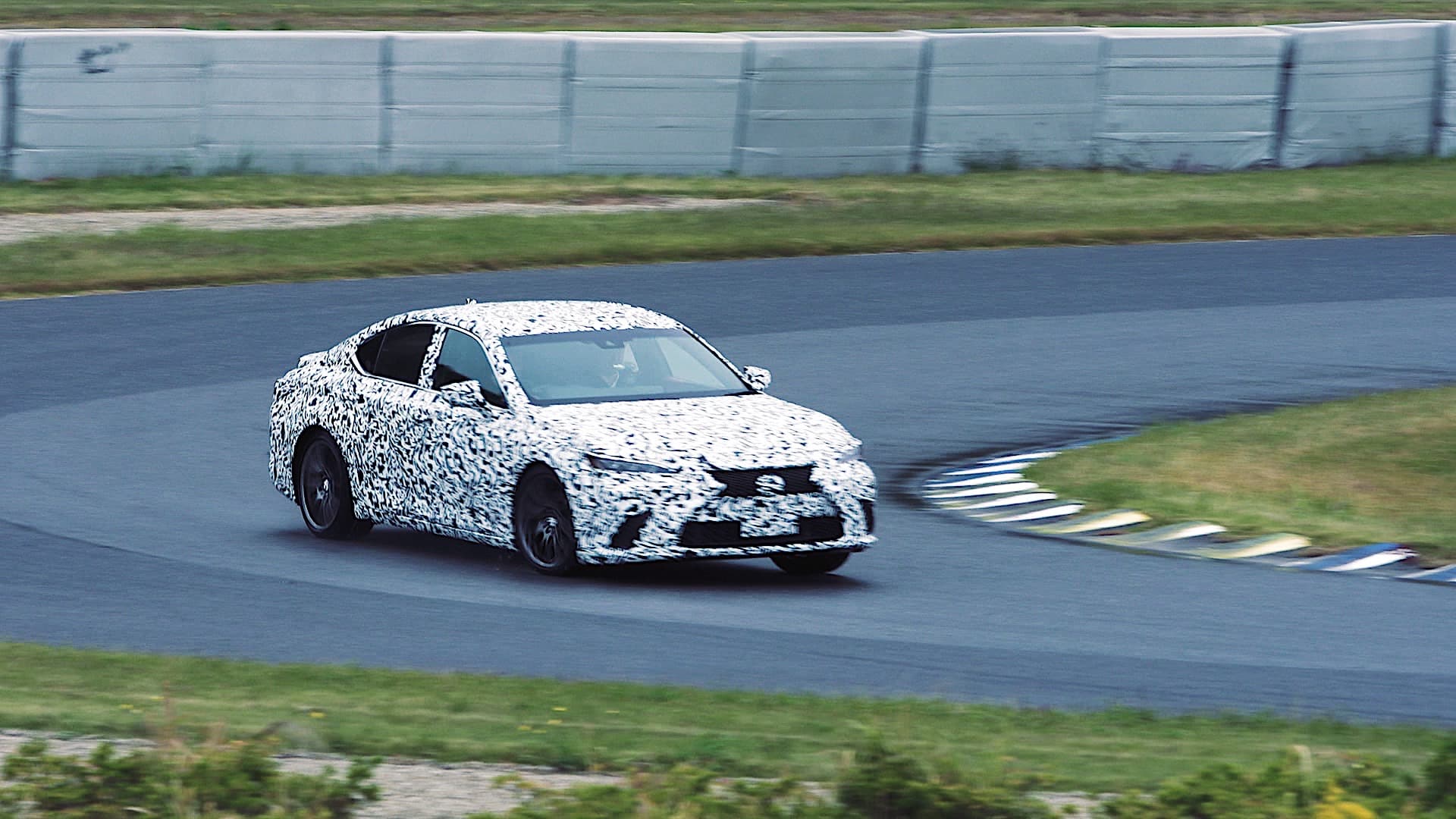Lexus has revealed what it’s been working on with regards to electrification. Along with parent company Toyota, Lexus has been a leader in hybrid powertrains. Now, we know the next step in the form of DIRECT4, a new electric drive control unit designed specifically for use in next-generation hybrid and all-electric vehicles.
How does DIRECT4 work? It controls torque delivery from the front and rear electric motors, and braking force at all four wheels, allowing the system to adapt to what the driver is doing. An electric motor and transaxle up front and in the rear, both of which are connected to the wheels via a drive shaft, should allow for quick response and instant, linear acceleration in EVs. In a hybrid, DIRECT4 appears to have eliminated the need for a conventional transmission or a planetary gear set, creating a direct drive setup. For AWD applications, the rear-mounted electric motor setup found in current Toyota and Lexus hybrids will remain.
Lexus’ chief engineer for its electrification project, Takashi Watanabe, revealed that DIRECT4 will also be used to improve vehicle performance via changing power and torque distribution. As Watanabe-san demonstrates in the accompanying video, DIRECT4 can easily work for FWD, RWD, or AWD layouts, broadening its usability and changing a vehicle’s road manners in the process. How does the system do that? By altering the torque split to each axle. In AWD configuration, distribution is set 50:50 front to rear while RWD mode splits 20:80 or 30:70 depending on your throttle inputs. Putting the car in FWD configuration sends more power to the front wheels.
As Lexus starts adapting the DIRECT4 system in its vehicles, expect the brand’s design to change. This could mean the end of the spindle grille, which has defined Lexus for a few years now. However, Koichi Suga, general manager for Lexus’ design division reveals that the brand is working on something new and sees electrification as a chance for the brand to show off cool, unique designs. “Rather than a specific shape or something, it’s more about expressing the technological foundations in three dimensions,” said Suga-san. “That’s what we are working on, so I think there’s a lot to look forward to.”
READ ALSO: 2021 Toyota Prius Prime review
Don’t expect Lexus to start releasing a barrage of EVs, though. Infrastructure will dictate which markets will get them first. “For regions where EVs are not the easiest to use and infrastructure is lacking, there are still many areas like that, so, according to the appropriate needs of those regions, Lexus will focus on hybrids in order to provide choices for the customer, with PHEV, EV, and eventually multi-fuel options such as FCV for the future,” stated Watanabe-san.
Although Lexus appears to be getting the DIRECT4 system first, don’t think that Toyota vehicles won’t. It’s likely that Toyota will launch vehicles with DIRECT4 at nearly the same time as Lexus does. As for the vehicles that will get the technology, we wouldn’t be surprised if the next-generation NX and RX SUVs are first in line. The latter is the brand’s bestseller while the former is poised to grow in size and get more powerful. On the Toyota side, the next-generation Prius is the most likely candidate because this will give the car AWD, more power, and improved performance while retaining its trademark high efficiency. DIRECT4 could also spell the end for the V6 engine in Toyota’s car lineup, turning the hybrid into the high-power and high-efficiency option in the Camry and Avalon.

